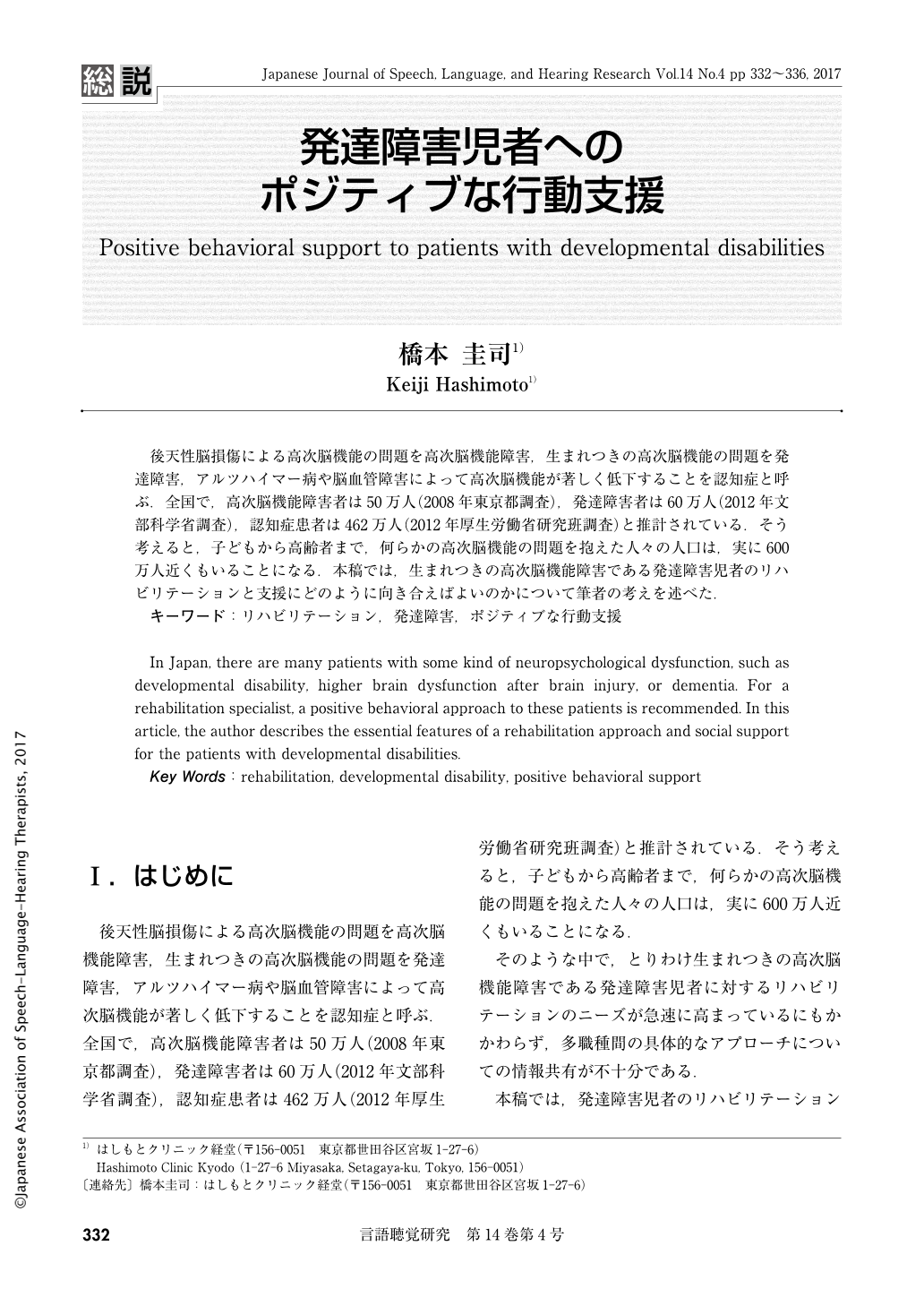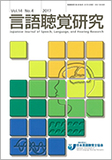Japanese
English
- 有料閲覧
- Abstract 文献概要
- 1ページ目 Look Inside
- 参考文献 Reference
後天性脳損傷による高次脳機能の問題を高次脳機能障害,生まれつきの高次脳機能の問題を発達障害,アルツハイマー病や脳血管障害によって高次脳機能が著しく低下することを認知症と呼ぶ.全国で,高次脳機能障害者は50万人(2008年東京都調査),発達障害者は60万人(2012年文部科学省調査),認知症患者は462万人(2012年厚生労働省研究班調査)と推計されている.そう考えると,子どもから高齢者まで,何らかの高次脳機能の問題を抱えた人々の人口は,実に600万人近くもいることになる.本稿では,生まれつきの高次脳機能障害である発達障害児者のリハビリテーションと支援にどのように向き合えばよいのかについて筆者の考えを述べた.
In Japan, there are many patients with some kind of neuropsychological dysfunction, such as developmental disability, higher brain dysfunction after brain injury, or dementia. For a rehabilitation specialist, a positive behavioral approach to these patients is recommended. In this article, the author describes the essential features of a rehabilitation approach and social support for the patients with developmental disabilities.

Copyright © 2017, Japanese Association of Speech-Language-Hearing Therapists. All rights reserved.


